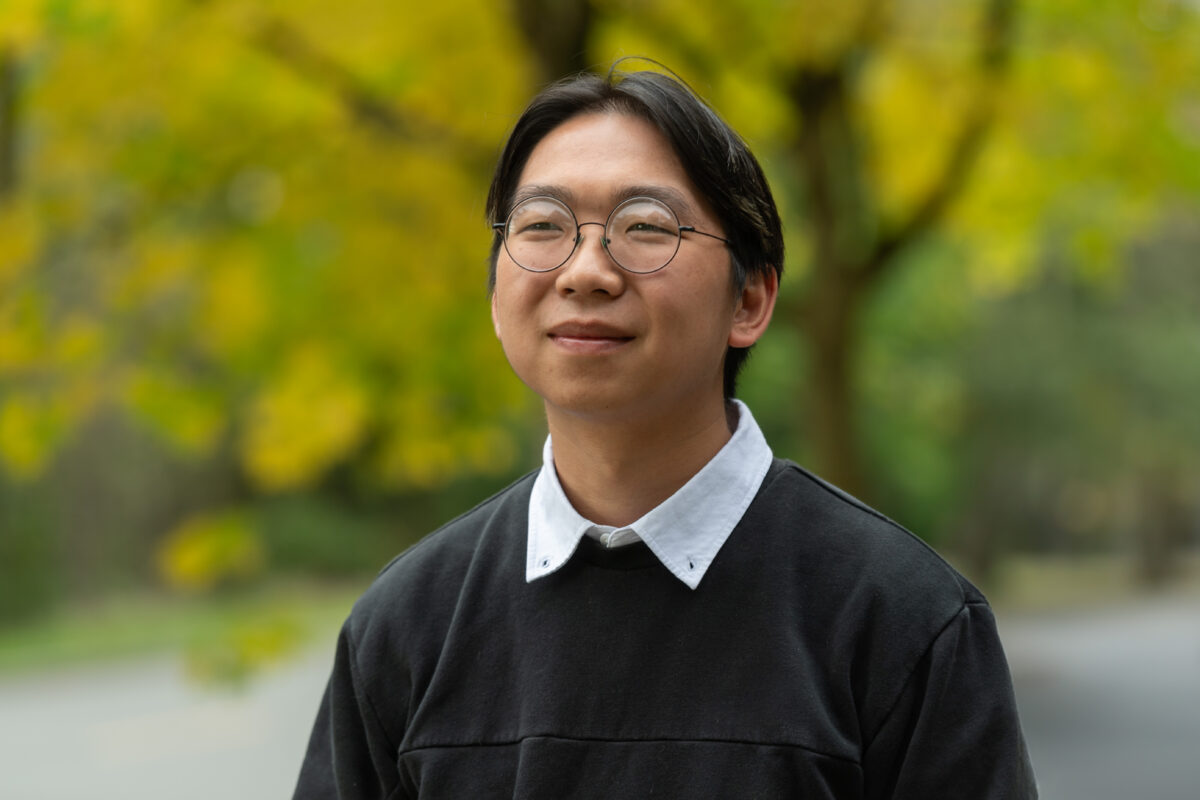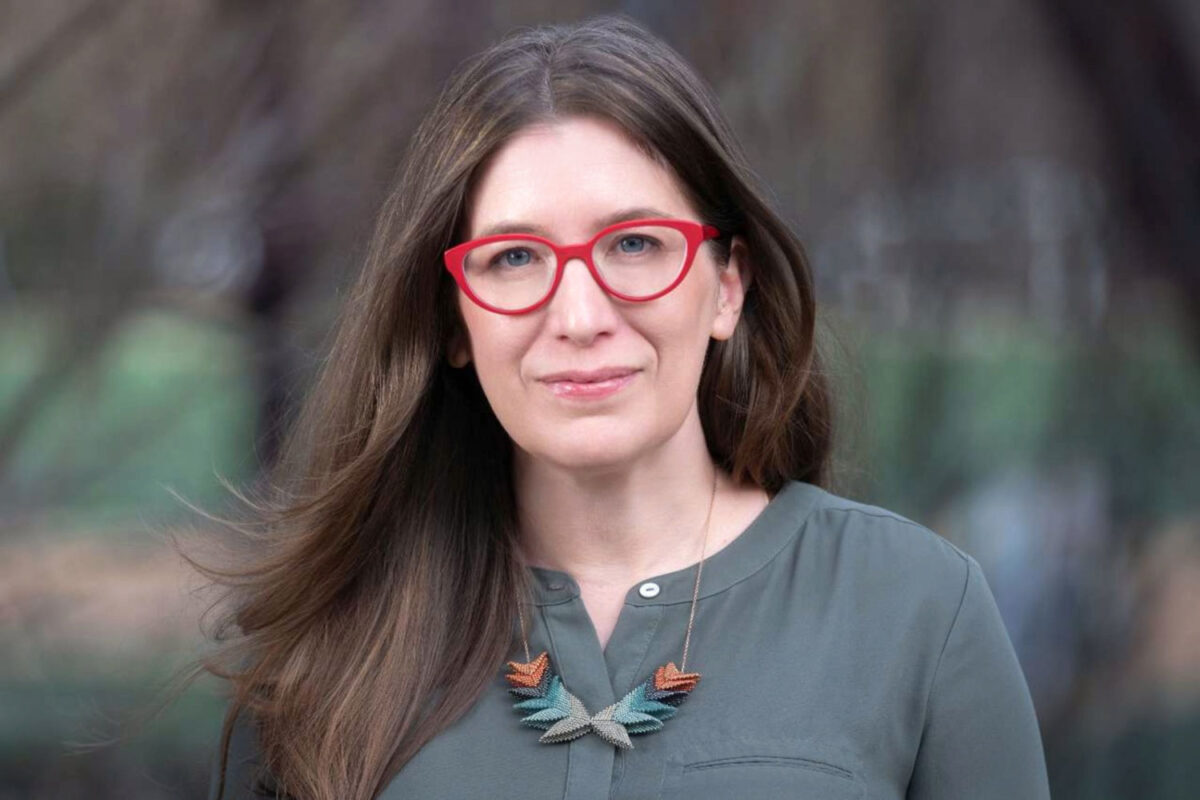In 2021, my friends and I petitioned to start a union in our workplace through Starbucks Workers United. Much like a democracy with citizens, the union would include the people who work at Starbucks.
To codify a union, we had to have a majority vote. With only 18 employees at our store, every vote mattered. Everyone had a voice as well as engagement in the voting process. No decision would be made unless it benefited everyone. It was our principle that our votes would speak for our workplace. Our discussions started with what people wanted out of this process and what information people needed.
In the end, we got a unanimous vote to unionize. And through this experience, I learned the importance of voting.
On a small scale, starting a union showed me how the voting progress can create real change. Unions fall under the civic umbrella. Our own participation was a win for our own rights. It showed me that access to information — making sure people’s needs are met and starting real conversations about social change — had tangible impacts. It is with this knowledge that we are better equipped to inform others on their rights.
Small groups of people can create change on any scale. Creating voter engagement starts with you and continues on. Local elections are just as important as the larger ones. Voting scales and your engagement can be what you want them to be.
Through our union, we were able to use civic engagement to contribute to a movement.
Voting is the foundation of social change in America, and one of the key challenges in voting is a lack of civic engagement from young people. This lack of engagement is both real and perceived; young people dismiss the power of their votes to enact social change, and politicians dismiss the possibility of young people caring enough about political issues to vote.
Young people, however, are already at the forefront of the voting process and must remain there. Voting empowers young people to use their collective bargaining power to ask for the changes they need. It allows young people to bring their diverse life experiences and backgrounds to the polls, and vote in support of those experiences — to create the change they want to see in the world and to fight for the rights of those around us.
I believe that voting must be presented to young people as a way to empower and amplify their voices, and I saw this belief in powerful practice at a NextGen Civic Leader Corps networking event called Why Voting Matters.
One of the things that I learned from the seminar is that voting in itself has become a broad issue, but it is with optimism that we can imagine a better future for ourselves. All voters have such different backgrounds, which make experiences vary from state to state. Still, young people remain at the forefront of social change. My philosophy is that political values can be extended and shaped to everyone in a way that makes sure every voice is heard.
Voting is one of the few ways we have to express our political autonomy. In America, we can find people with the same values through the voting process. Voting leads us to other places even when voting does not lead us to the outcome we desire. When all else fails we can turn to community organizing and empowering communities in other ways. And the NextGen corps is a place where we can begin to engage civically within our community and our school.
Young people of today must not forget the future that can still be made. In every sense, we must remember our responsibilities as citizens to create the change we want to see in the world and to fight for the rights of those around us. The youth of today must participate in civic engagement and for political participation as a means to social change.
Young people of today must not forget the future that can still be made. In every sense, we must remember our responsibilities as citizens to create the change we want to see in the world and to fight for the rights of those around us.
Andy Walker-Tran, NextGen Civic Leader
It is in political engagement where we struggle against apathy, and the young voters of America are able to create their own meaning in the political process. Voting is experiential, personal and subject to change. Yet we make voting decisions not just in a bubble but between each other.
Our responsibilities and commitments to each other depend on communities coming together to vocalize their needs. Young voters must not get caught up in the difficulties of voting, but rather feel empowered by their own voices and make decisions based on their own principles. Thus, as citizens, we can use our collective bargaining power to ask for the changes we need.
We face issues today such as the failing infrastructure in America and climate change, among many others. As a member of the LGBTQ community, I also strive to be optimistic about the future while understanding the fight that people have put before me. Many gay rights have only been won in the last few decades. Voting got us the American with Disabilities Act as well as gay marriage.
If this generation can keep fighting through our votes, we can continue to fight for better conditions for all. Fighting for change — for our futures — is a fight for basic human rights.
Andy Walker-Tran is a senior with a major in Law, Economics & Public Policy and a minor in human rights — and works as a student ambassador with UW Bothell’s NextGen Civic Leader Corps. The corps is designed to inspire undergraduate students to consider careers in government, nonprofit and social venture organizations. A tri-campus initiative of the UW, it is also part of a growing network of similar programs across the country that help students recognize and deepen their commitment to community engagement and public service.




